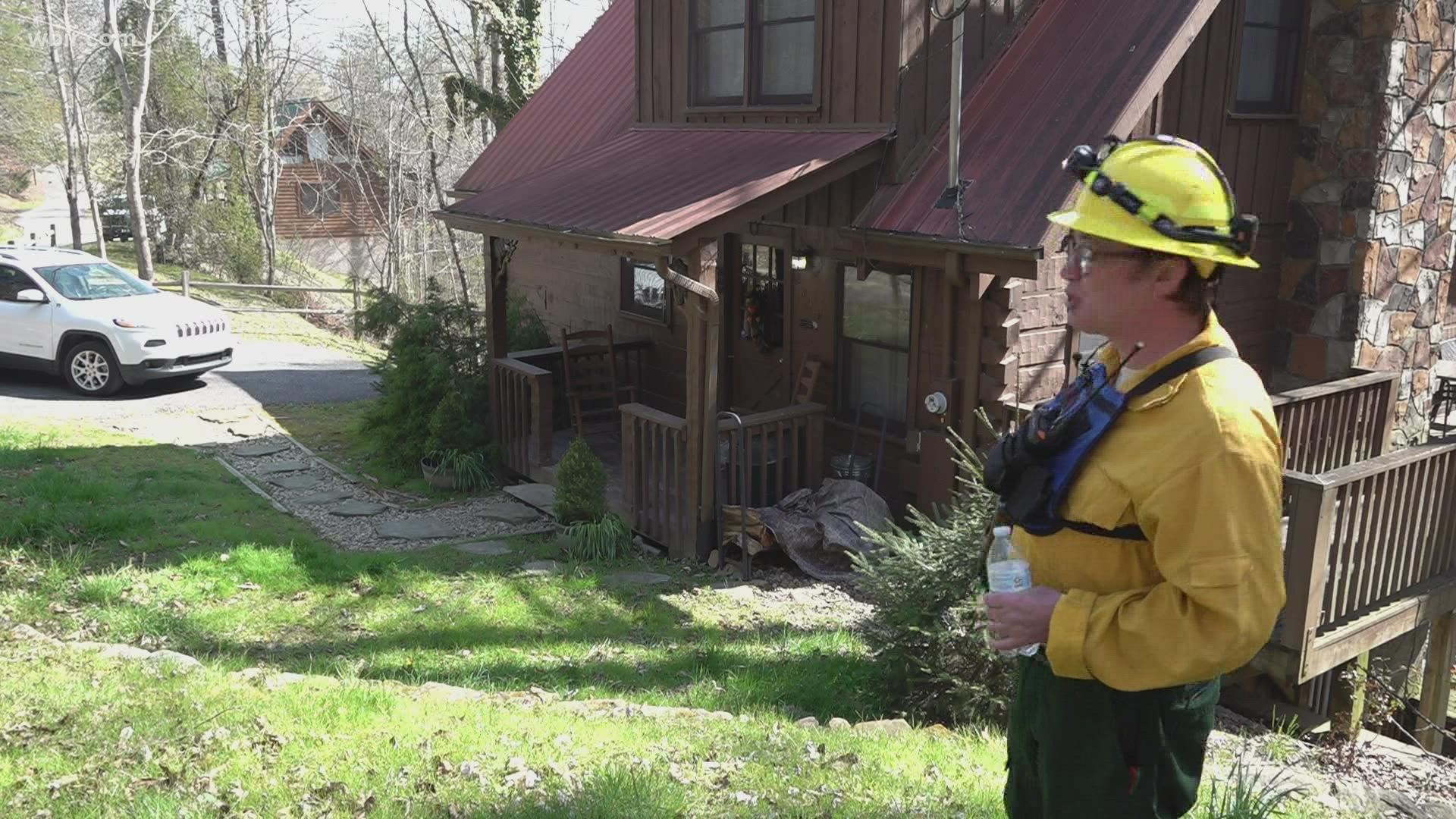SEVIER COUNTY, Tenn. — The space around your property could either help or hinder its chances of surviving a wildfire.
Experts say several small things can make a big difference when it comes to fire protection.
"It's much like a campfire. It starts with the small things and it builds to the structure being consumed," said a forester with the Tennessee Division of Forestry, Brook Smith.
Creating a "defensible space" is one of the most important steps. That's the area around your property ranging from zero to 30 feet.
Plants have a big influence in this space.
Dead vegetation around your home, including dead trees, shrubs, leaf litter, or fallen branches, should be removed.
Checking off what experts call the "lean, clean, and green" checklist will help tremendously.
They recommend having greens like low-growing grass, clover, and bedding plants within your defensible space. Those are less likely to carry fire.
Smith pointed to a property on Hatcher Mountain as a good example.
The cabin is standing strong after a wildfire ripped through the area last week.
"This cabin is very safe," he explained. "It's very moist down in here; the relative humidity. You've got a drain right behind it."
Because heat rises, Smith recommends being extra cautious when building a property on slanted land.
"This structure does not have any offsets from the slope, which makes it very susceptible to the heat that's coming up the slope," he said, pointing to a burned-down home on Hatcher Mountain. "If it had offsets, then the heat would rise and it would not encounter the structure as much."
The materials used to build your home also play a big role in making sure it's protected.
Experts suggest using fire-resistant or non-combustible materials whenever possible.
For roofing, consider using materials like asphalt shingles, clay tile, metal, or cement.
When it comes to exterior walls, stucco or masonry are better choices than vinyl, which can soften and melt.
Smith recommends conducting periodic inspections of your home to look for any deterioration like warping wood or cracks.

